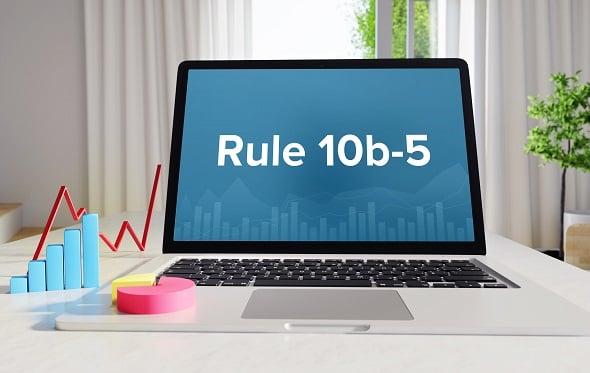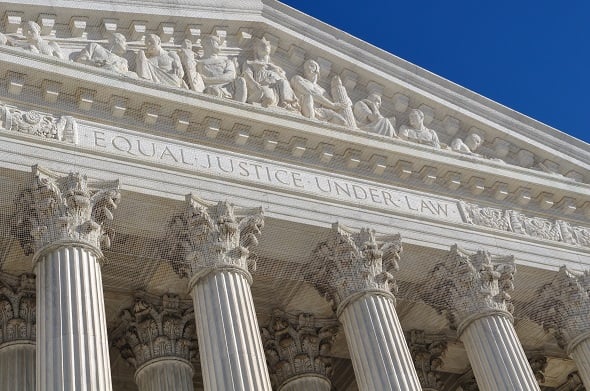The Supreme Court recently ruled that only “half-truths” can support securities actions, not “pure omissions”. However, impact of the ruling will likely be limited.
Most securities actions in the United States are brought alleging a violation of Rule 10b-5, a Securities and Exchange Commission regulation. Among other things, Rule 10b-5 creates liability for issuers of securities who “make any untrue statement of a material fact” or “omit to state a material fact necessary in order to make the statements made, in the light of the circumstances under which they were made, not misleading”. Notably, per the text of the rule, this second obligation not to omit material facts only applies where the company had made some other statement, and the omission makes this other statement misleading.

Consider, for example, where a company has discovered that its Chief Executive Officer is being arrested for illegal insider trading, but the company does not mention the arrest in its quarterly filings [1]. Absent an affirmative statement by the company to the effect of, “Our Chief Executive Officer is not under arrest for insider trading,” it is not clear that Rule 10b-5 has been violated. Certainly, you could understand how an investor purchasing the stock while the company knew of but had not disclosed the arrest might be frustrated by and even feel deceived by such an omission, as it is reasonably likely to impact the company’s performance. Yet, no untrue statement was made. And, though material information was clearly omitted, there was no other statement that was made misleading by the omission.
In other words, Rule 10b-5 clearly prohibits “half-truths”, but not “pure omissions”.[2]
A question that has arisen in securities litigation is, when a company is required by a different regulatory obligation to disclose a material fact, and they fail to do so, does that effectively convert the “pure omission” into being a “half-truth” sufficient to constitute a violation of Rule 10b-5. In particular, Item 303 of Securities and Exchange Commission Regulation S-K requires a company to “[d]escribe any known trends or uncertainties that have had or that the registrant reasonably expects will have a materially favorable or unfavorable impact” in their quarterly filings. Does the obligation to disclose serve as, in effect, a question posed to the company regarding material news such that their failure to disclose it operates as an affirmative statement that no such news exists?
Notably, some federal courts in the United States, including the important United States Court of Appeals for the Second Circuit, have ruled that, yes, a regulatory obligation to disclose information is sufficient to make an omission misleading. While other federal courts in the United States, including the United States Courts of Appeals for the Ninth, Eleventh and Third Circuits, have ruled that, no, failing to meet a regulatory obligation to disclose information did not change that omission from a “pure omission” to a “half-truth”.

On 12 April 2023, the Supreme Court of the United States of America resolved the split by ruling in a unanimous opinion that even where a regulatory obligation to disclose information exists, Rule 10b-5 has not been violated by an omission unless the company has made some affirmative statement that is misleading absent the omitted information. That is, a regulatory obligation to disclose information does not convert a “pure omission” into a “half-truth” that can support a securities claim under Rule 10b-5.
In the case before the Court, a company that made substantial revenue from storing high-sulfur fuel did not disclose to investors that the United Nations was banning the use of the relevant fuel, severely damaging the business. Investors initiated a securities action alleging that the omission constituted a violation of Rule 10b-5. The Court ruled that, no, “The question in this case is whether the failure to disclose information required by Item 303 can support a private action under Rule 10b–5(b), even if the failure does not render any ‘statements made’ misleading. The Court holds that it cannot. Pure omissions are not actionable under Rule 10b–5(b).” 22-1165 Macquarie Infrastructure Corp. v. Moab Partners, L. P. (04/12/2024) (supremecourt.gov)
At first, it may seem that the ruling will have a broad and limiting impact on securities actions. Many securities actions have made claims based on violations of Rule 10b-5 premised on failure to disclose information required by Item 303 of Regulation S-K.
However, it is actually unlikely that the ruling will impact securities litigation in any substantial way. It is very rare that these claims premised on failure to disclose information as required by Regulation S-K are the only claims brought by the investors initiating the suit. The reality is that publicly traded companies are frequently in dialogue with the public through a number of channels on virtually all relevant topics. Where they have omitted material information, it will be rare that investors will not be able to find some statement made misleading by the omission. Even for the case ruled on by the Supreme Court on 12 April, the case will only be ended as to the one claim brought premised on failure to disclose information as required by Regulation S-K. The complaint in that case included other claims that identified specific statements the plaintiffs alleged were misleading in light of the omission, and the case will move forward based on those claims.
***
[1] Though not in the US, see: Hexagon CEO was under arrest during results call, investors unaware | Reuters.
[2] As the author of the relevant Supreme Court decision described below put it, “the difference between a pure omission and a half-truth is the difference between a child not telling his parents he ate a whole cake and telling them he had dessert.”





